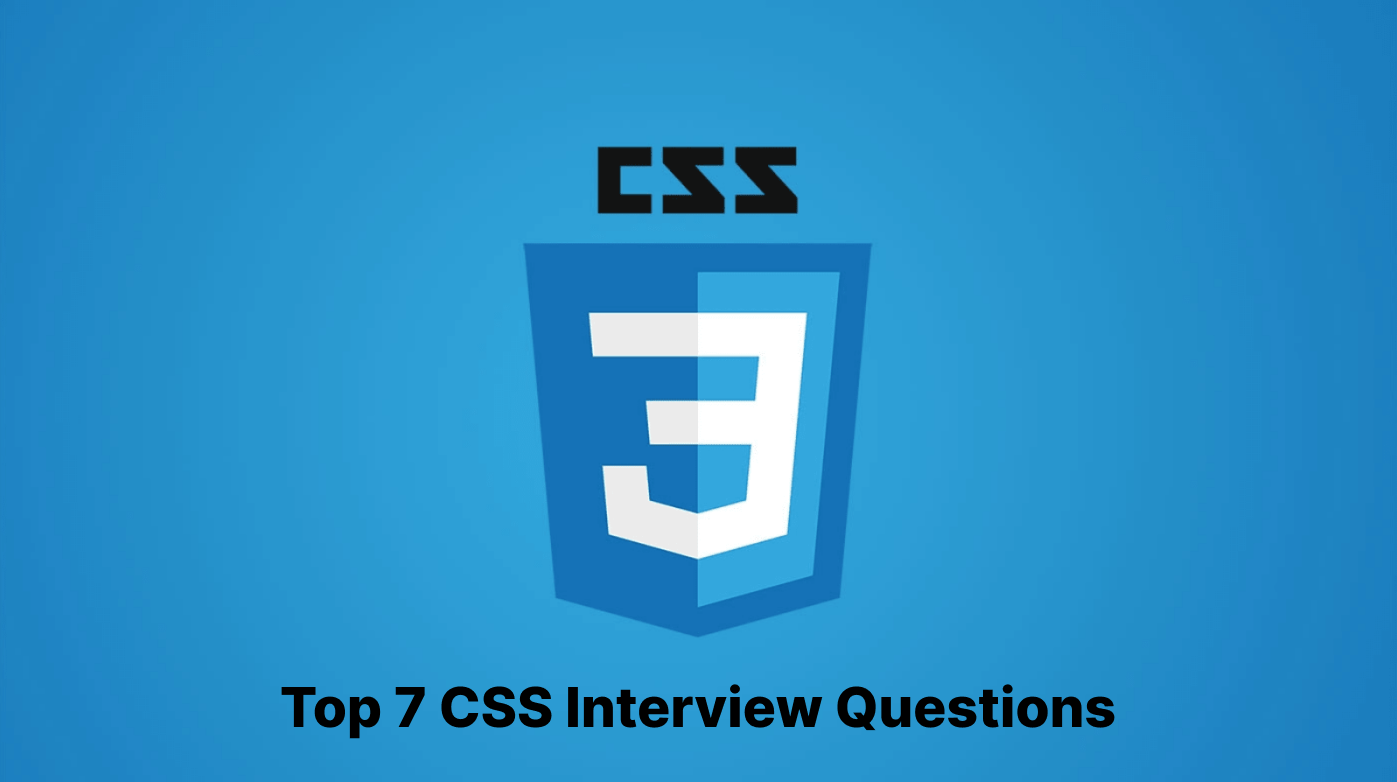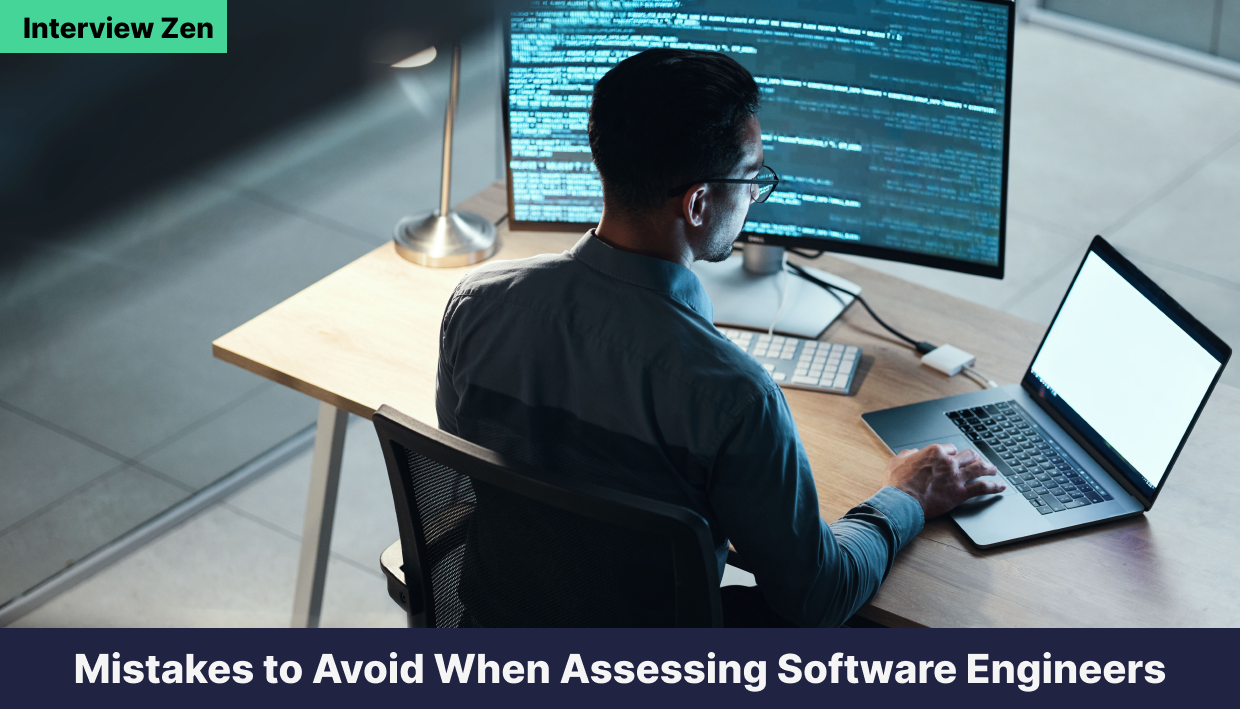Introduction
In today’s highly competitive tech industry, finding the right talent is more challenging than ever. According to Statista, there are around 26.9 million software developers worldwide, which is expected to grow to 28.7 million in 2024. This ever-increasing talent pool presents both an opportunity and a challenge for recruiters. While it means there are more potential candidates to fill roles, it also implies that the process of identifying and assessing the best fit has become increasingly complex and time-sensitive.
The developer assessment interview is an important part of the recruitment process and needs to be well-structured for accurate results. Conducting an effective assessment interview is not just about asking the right technical interview questions; it’s about having a well-structured process that evaluates the candidate’s technical and soft skills.
According to LinkedIn’s recent survey, 83% of talent say a negative interview experience can change their mind about a role or company they once liked. This underscores the importance of asking relevant software engineer interview questions and having an organized system to evaluate candidates’ full range of skills.
This article aims to guide hiring managers in structuring effective technical interviews, particularly when assessing software engineers. By leveraging Interview Zen, a premier technical assessment platform, hiring managers can gain insights into developing interviews that are comprehensive and aligned with the practical needs of the software development industry.
In this article, we will explain strategies for conducting a successful technical assessment interview, ensuring a robust and efficient hiring process.
Top 8 Strategies for Conducting Technical Assessment Interviews
Ensuring the relevance of test questions in technical assessment interviews is crucial in determining the effectiveness of the hiring process, especially for software developers. The key is to align these questions closely with the job-specific skills and requirements to assess a candidate’s suitability for the role accurately.
1. Align with Job Requirements
- For a role that primarily involves Python, consider questions like, “How would you optimize a Python script that processes large datasets?” This not only tests Python proficiency but also evaluates understanding of performance optimization.
- For a JavaScript-focused role, you might ask, “Can you write a JavaScript function that dynamically renders UI components based on user input?” This question assesses both JavaScript knowledge and the ability to handle dynamic user interfaces.
Reflect Real-World Scenarios
- For a database administrator role, use a question like, “How would you design a database schema for an e-commerce platform that supports thousands of concurrent transactions?” This reflects the complexities they might face on the job.
Avoid Irrelevant Complexity
- While it might be tempting to include challenging questions, they should directly relate to the job. For example, avoid asking a front-end developer intricate backend optimization queries unless it’s relevant to their role.
Update Regularly
- In a rapidly evolving field, keeping your questions current is essential. For instance, for a cloud computing role, include questions on recent advancements in cloud technologies, like container orchestration with Kubernetes.
By focusing on creating relevant and practical test questions, hiring managers can more effectively gauge the true capabilities of candidates. This approach streamlines the hiring process and enhances the likelihood of finding the right talent for technical roles. Such precision in crafting questions ensures a fair and effective assessment, aligning with the position’s actual needs and the current technology trends.
2. Pace the Test Fairly
Balancing thoroughness with respect for the candidate’s time is crucial in technical assessment interviews. The pacing of the test plays a key role in this. A well-paced test ensures a fair assessment and enhances the candidate’s experience, which is important in maintaining the company’s reputation as an employer.
Reasonable Time Limits
- For example, a coding challenge that involves writing a new feature for an existing codebase could have a time limit of 2-3 hours. This duration respects the complexity of the task while giving candidates enough time to demonstrate their coding skills and problem-solving approach.
- In a multiple-choice quiz focusing on specific technical knowledge, such as network security protocols, a shorter duration, like 30-45 minutes, might be appropriate, reflecting the quicker decision-making this type of question requires.
Reflect Real-World Job Demands
- If the role involves fast-paced decision-making, like in a high-frequency trading software developer position, it includes shorter, time-pressured tasks that mimic the real-world environment.
- Conversely, for roles that require deep analytical skills, such as a data scientist position, consider a longer, more open-ended project that allows candidates to demonstrate their ability to delve into complex data sets and extract meaningful insights.
Consider Candidate’s Perspective
- Acknowledge that candidates may be taking the test in their personal time. To respect this, provide clear guidelines on the expected completion time and avoid setting tests requiring unreasonable hours.
Trial Runs and Adjustments
- Conducting trial runs of the test with current employees can provide valuable insights. For instance, if a test designed for a senior software engineer role is completed much faster by your existing staff, it may indicate a need to increase the complexity or duration to assess candidates at the desired level accurately.
By carefully considering these aspects, hiring managers can create a testing environment that is both challenging and respectful of candidates’ time. Fair pacing is key to ensuring that the assessment process accurately gauges a candidate’s abilities in a manner that aligns with the real-world demands of the role. This approach not only aids in selecting the right candidates but also fosters a positive perception of the hiring process, enhancing the employer’s image in the competitive tech industry.
3. Cheat-Proof Your Technical Assessment Tests
Ensuring the integrity of technical assessment tests is crucial, especially in an era where resources for cheating are readily accessible. Implementing cheat-proof measures not only upholds the validity of the test results but also ensures that the candidates hired are truly qualified for the role.
Randomized Question Sets
- Utilize a large pool of questions and generate random sets for each candidate. For example, if testing Java skills, you might have 50 different questions on various Java concepts and programming tasks, from which a random set of 10 is selected for each candidate.
Time Tracking and Analysis
- Monitor how long candidates spend on each question. If a candidate spends an unusually short amount of time on complex coding tasks, it might indicate they had prior access to the answers. Similarly, unusually long times on simpler questions might suggest struggles with fundamental concepts.
Plagiarism Detection
- Employ software tools that compare code submissions against a database of known sources and previous candidates’ answers. For instance, if two candidates submit identical or nearly identical solutions to a unique coding problem, this could be a red flag.
Browser Lockdown and Proctoring
- In high-stakes assessments, browser lockdown features restrict candidates from navigating away from the test. Online proctoring can also be used, where a proctor observes the candidate through a webcam, ensuring they don’t refer to external help.
Practical and Unique Problem-Solving Questions
- Craft questions that require candidates to apply their knowledge to new and unique problems. For example, a question could involve developing a novel algorithm to optimize resource allocation in a simulated cloud computing environment, a task unlikely to have a pre-existing solution online.
Follow-up Interviews
- After the assessment, interviews were conducted where candidates explained their approach and reasoning for the solutions they provided. This can help verify their understanding and confirm the originality of their work.
Implementing these cheat-proofing strategies makes the hiring process more robust and trustworthy. It ensures that the candidates’ technical skills and problem-solving abilities are accurately assessed, reflecting their true potential to contribute effectively in a software development role. This approach protects the hiring process’s integrity and ensures that the organization builds a team of genuinely skilled professionals.
4. Combine Tech Assessments with Video Interviews
Integrating technical assessments with video interviews provides a comprehensive approach to candidate evaluation. This combination allows hiring managers to gauge technical proficiency. It offers insights into interpersonal skills, communication abilities, and overall team fit, which is crucial for roles that demand collaboration and effective communication.
Comprehensive Evaluation
- After a technical assessment, a video interview can be used to discuss the candidate’s approach to the problems they solved. For example, if a candidate wrote a function to sort a large dataset, the interviewer can ask them to explain their choice of sorting algorithm and its efficiency.
Personal Connection
- Video interviews allow hiring managers to observe non-verbal cues. For instance, a candidate’s ability to maintain eye contact while explaining a complex code can demonstrate confidence and clarity in their subject matter understanding.
Diverse Skill Assessment
- Beyond technical skills, video interviews can assess cultural fit and adaptability. A question like, “Can you describe a time when you had to adapt quickly to a new technology or framework?” can provide insight into the candidate’s learning agility and flexibility.
Flexibility and Convenience
- The convenience of video interviews is particularly advantageous in remote and global hiring scenarios. It allows candidates from different geographic locations to be assessed without needing to travel.
Real-Time Problem Solving
- During the video interview, present real-time coding challenges or conceptual questions based on their assessment performance. For example, if a candidate implemented a particular design pattern in their assessment, ask them to discuss its advantages and potential drawbacks in different scenarios.
5. Keep Your Applicants in the Know
Transparent communication with candidates about the testing process is essential for a positive candidate experience and reflects well on your organization. Providing clear, detailed information at each step builds trust and respect, key factors in attracting top talent.
Clear Expectations
- Inform candidates about the technical assessment, including the types of questions (e.g., coding problems, logic puzzles, algorithm design), expected duration, and format (e.g., multiple-choice, hands-on coding, or debugging tasks). For example, you might say, “The assessment will include three coding challenges focused on data structures and algorithms, each expected to take around 30 minutes.”
Guidelines and Resources
- Provide resources to help candidates familiarize themselves with the assessment platform, like Interview Zen. This could include a brief tutorial on navigating the platform, submitting answers, or using tools like a code editor or compiler.
Feedback Timeline
- Clearly communicate when candidates can expect feedback. For example, “You will receive detailed feedback on your coding assessment within one week of submission.”
Provide a Point of Contact
- Designate a point of contact for any queries. This could be a recruiter or a technical team member who can answer questions about the assessment process or technical requirements.
Respectful Reminders
- Send timely reminders about any documents or preparation required before the assessment. For example, “Please remember to review the provided guidelines on our coding challenges before your assessment this Thursday.”
Post-Assessment Feedback
- Offer constructive feedback post-assessment. For instance, for a candidate who performed well in problem-solving but had less efficient code, you might say, “Your algorithmic approach was strong, but there’s room to improve the efficiency of your code, particularly in space complexity.”
Maintaining transparent communication throughout the technical assessment process is beneficial for the candidates and enhances your company’s reputation as an employer that values and respects its applicants.
6. Provide Meaningful, Timely Feedback
Providing meaningful, timely feedback following a technical assessment interview is a crucial aspect of the hiring process, significantly impacting the candidate’s experience and your company’s brand.
Timely Response
- Ensure feedback is given soon after the assessment, ideally within a few days. This promptness shows respect for the candidate’s time and keeps them engaged. Delayed feedback can be frustrating and negatively impact their perception of the company.
Specific and Constructive
- Provide detailed feedback that goes beyond generic comments. For example, if a candidate did well in a SQL coding challenge but struggled with optimization, the feedback might be, “Your SQL queries accurately fetched the required data, but consider indexing and query optimization techniques for better performance.”
Balanced Approach
- Strive for a balance between acknowledging strengths and pointing out areas for improvement. For instance, if a candidate showed excellent problem-solving skills but had issues with code readability, acknowledge their creative approach while suggesting best practices for code documentation and formatting.
Future Learning Opportunities
- Offer recommendations for resources or courses, especially in areas needing improvement. For example, “To enhance your skills in JavaScript, you might find the Advanced JavaScript course by [Course Provider] helpful.”
Encouraging Tone
- Maintain a positive tone, regardless of the outcome. This approach can leave candidates with a favorable impression of your organization. For instance, “We were impressed with your analytical skills, and we encourage you to continue developing your technical expertise.”
Feedback Method
- Consider the method of delivery. Personalized feedback through a phone call or video chat can be more impactful, particularly for candidates who have advanced to the later stages of the hiring process.
7. Decide When to Conduct the Tech Assessment Tests
Determining the optimal timing for technical assessment tests within the recruitment process is a strategic decision that significantly impacts hiring efficiency and effectiveness. The right timing ensures a smooth integration of these assessments into the hiring timeline and maintains candidate engagement.
Early Screening vs. Later Stages
- Consider the role’s specific needs. For example, for a highly technical role like a senior software engineer, an early technical test can quickly sift through candidates to find those with the necessary advanced skills. In contrast, for a role where cultural fit is equally important, such as a team-lead position, conducting technical assessments might be more effective after initial cultural fit interviews.
Avoid Overburdening Candidates
- Placing a technical assessment too early in the process may deter good candidates who aren’t yet committed to the role. However, too late, and you risk investing time in candidates who don’t meet technical requirements. A balanced approach might involve a brief initial screening followed by a more in-depth technical assessment for shortlisted candidates.
Alignment with Recruitment Stages
- Align the technical assessment with other recruitment stages. For example, after a preliminary screening call that assesses basic qualifications and communication skills, a technical test can follow to evaluate the candidates’ core technical competencies.
Candidate Preparation Time
- Give candidates adequate notice before the assessment. For instance, inform candidates a week in advance if they will be required to complete a coding task, allowing them time to prepare and schedule appropriately.
Feedback and Iteration
- Be open to adjusting your strategy based on feedback and results. If you notice a high drop-off rate at the assessment stage, it might be worth reconsidering its placement in the hiring process.
Consistency Across Candidates
- Ensure fairness and accuracy by having all candidates for a particular role undergo the assessment at the same stage. This consistency is vital for making fair comparisons between candidates.
Choosing when to conduct technical assessments requires balancing the company’s needs with the candidates’ experience. Integrating these assessments into your recruitment timeline can enhance the hiring process’s overall efficiency and ensure a positive experience for the candidates. This approach will not only streamline the hiring process but also ensure that you evaluate candidates most effectively and fairly.
8. Consider Using an All-in-One Recruitment Solution

Using comprehensive recruitment solutions like InterviewZen can offer significant advantages, streamlining the hiring process and enhancing overall efficiency.
Streamlined Recruitment Process
All-in-one platforms integrate various stages of recruitment, from posting job ads to conducting technical assessments and interviews. This integration leads to a smoother, more organized hiring process, reducing the administrative burden on hiring teams.
Consistency in Assessments
Using a single platform for all technical assessments ensures consistency in administering and evaluating tests. This uniformity is crucial for fair candidate evaluation and high standards across all recruitments.
Time and Resource Efficiency
Comprehensive solutions automate many time-consuming tasks, such as scheduling interviews, sending reminders, and collating test results. This automation frees up valuable time for hiring managers to focus on more strategic aspects of recruitment.
Data-Driven Decision Making
These platforms often come with analytics and reporting tools that provide insights into various aspects of the hiring process. Such data can inform future recruitment strategies, helping to improve the process continuously.
Enhanced Candidate Experience
A streamlined and coherent process facilitated by an all-in-one platform can greatly improve the candidate experience. A positive experience can increase a candidate’s interest in the role and improve the company’s reputation in the job market.
Scalability and Flexibility
As the company grows and hiring needs evolve, an all-in-one recruitment solution can scale accordingly. This adaptability ensures that the recruitment process remains efficient and effective, regardless of the size or complexity of the hiring requirements.
Incorporating a comprehensive recruitment solution like Interview Zen into your hiring strategy can significantly enhance the efficiency and effectiveness of your recruitment efforts. By simplifying and optimizing various aspects of the hiring process, such platforms save time and resources and contribute to a more positive and productive recruitment experience for both hiring teams and candidates.
Conclusion
In attracting and retaining top software engineering talent, the strategies outlined for conducting technical assessment interviews play a pivotal role. They streamline the hiring process and ensure that the candidates selected are the best fit for the role and the organization. Implementing these strategies can significantly enhance the quality of hires, thereby contributing to the success and growth of your company.
We’ve explored a range of strategies, from ensuring the relevance of test questions to integrating technical assessments with video interviews, providing meaningful feedback, and considering the timing of assessments. These strategies are designed to optimize the technical hiring process, making it more efficient, fair, and effective.
As a comprehensive recruitment solution, Interview Zen offers a specifically tailored platform for conducting technical interviews. Its capabilities in facilitating relevant, cheat-proof assessments and streamlining the entire recruitment process make it an invaluable tool for any hiring manager looking to improve their technical hiring strategies.
We invite you to explore and implement these practices in your hiring process. Embrace the power of a platform like Interview Zen to revolutionize how you assess and hire software developers.
Don’t miss the opportunity to elevate your hiring practice to the next level. Try Interview Zen for your next round of technical interviews.
Read more articles:




